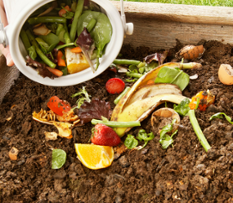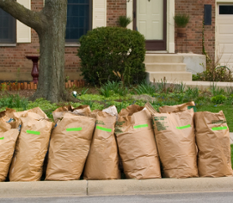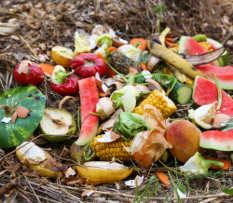Organics
By composting food scraps, yard trimmings, and other organic materials, we are diverting tons of waste from the landfill each year. This not only extends the life of our landfills but also reduces harmful greenhouse gas emissions. The City will also explore the use of biochar- a charcoal-like substance created from the burning of wood and similar biomass- as a kind of mulch and fertilizer for trees and gardens.

Food Waste
In 2021 Cincinnati sent 74,953 tons of household waste to the landfill, approximately 16.8% (12,592 tons) of which was food waste. Diversion of organic material like food scraps can be completed through food waste prevention and recovery, as well as composting.
Learn more about what Cincinnati is doing to combat food waste.

Yard Waste
In 2021, Cincinnati sent 10,718 tons of yard waste (16.8% of all waste) to the landfill. Here, it produces methane, a greenhouse gas about 28x more potent than carbon dioxide. Instead, we can compost it to create nutrient-rich soil. Mulching and chipping also offer eco-friendly ways to reduce erosion, retain moisture, and boost plant health.

Composting
Composting is an environmentally friendly way to take organic waste like food scraps and yard waste and turn it into nutrient-rich food for the soil. From backyard bins to special event compost collection, Cincinnati has many great options for keeping organics out of the landfill.
